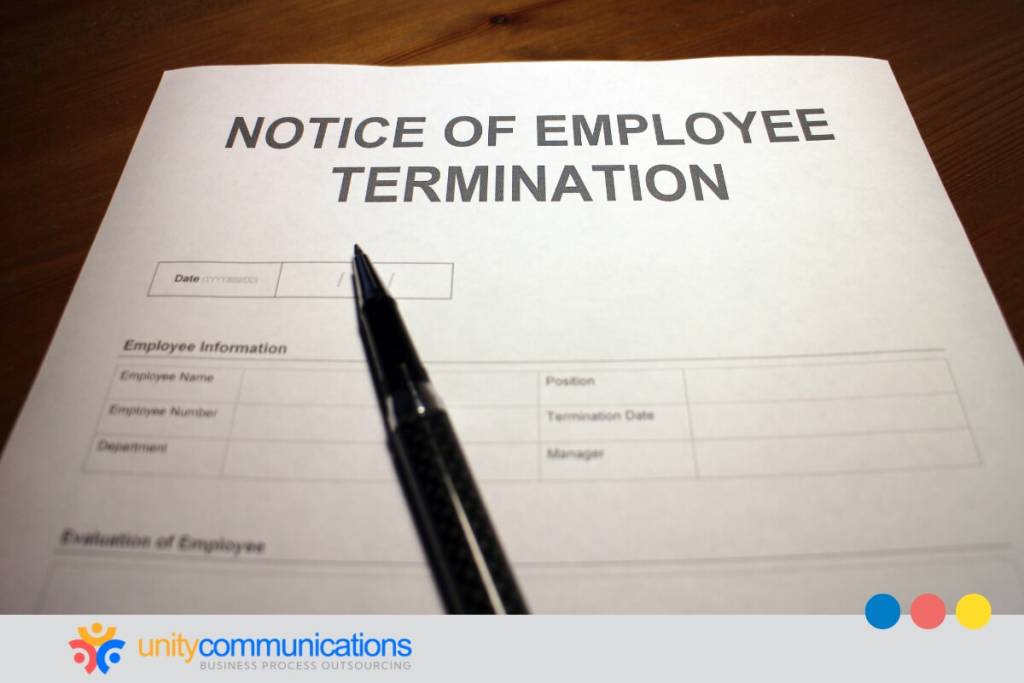Table of Contents
Business process outsourcing (BPO) has long gained ground as a solution for improving operations, reducing costs, and more. But one of its potential drawbacks is the possible security risks since companies need to partner with a third-party service provider.
Addressing security threats is key to avoiding financial and legal ramifications. Securing your business also guarantees the following potential benefits:
- Organizational efficiency
- Regulatory compliance
- Business continuity
- Consumer trust
- Cost reductions
- Additional revenue
- Overall business success
Fret not—this page covers the BPO industry’s most common security threats and the measures it implements to address them.
Common Security Threats in the BPO Industry
Security threats are rampant, affecting several businesses across various industries. The BPO sector is no exception. BPO firms are all the more vulnerable to security breaches since they serve multiple clients and handle sensitive data.
As such, businesses partnering with third-party providers should keep abreast of cybersecurity issues in the BPO industry. They must know the data security measures that BPO companies can implement and be familiar with the BPO industry’s security threats.
- Physical security risks include unauthorized access to BPO facilities, data and equipment theft, and physical infrastructure damage.
- Data breaches happen when unauthorized personnel access and steal sensitive information.
- Phishing attacks entail using deceptive emails, messages, or sites to trick BPO agents into disclosing confidential information.
- Malware and ransomware attacks employ malicious software to infect the BPO provider’s systems, disrupt business operations, and leak data.
- Man-in-the-middle attacks happen when attackers intercept communications between agents and customers, thus compromising the BPO engagement’s data security.
- Distributed denial-of-service (DDoS) attacks affect the BPO firm’s networks, simulating a high traffic volume and making them unavailable to legitimate users.
- Structured query language (SQL) injection attacks target the BPO company’s databases by triggering vulnerabilities in web applications and enabling attackers to manipulate them.
- Tech errors occur due to system misconfigurations, software glitches, and agent mistakes, inadvertently putting the BPO provider’s systems and data at risk.
- Insider threats involve individuals within the BPO organization who deliberately or unintentionally misuse their access and compromise security.
Four A’s + Bonus Tip: How the BPO Industry Handles Security Threats
Understanding what BPO is is essential. This approach involves entrusting business processes and data to a third-party company. What does this mean for organizations? Companies expose their business and customer information to a BPO provider, potentially risking their own security.
According to Statista, the highest record of data breaches was in 2020, with nearly 125 million exposed data sets during the pandemic. Today, companies, including BPO firms, are prioritizing cybersecurity.
Follow our security measures below to learn how BPO companies handle data security threats.
1. Authentication: Require Identity Verification
In the world of BPO security, authentication plays a crucial role in accessing data and systems. It involves verification processes that BPO employees undergo to log in to systems and access data. It ensures the legitimacy of individuals infiltrating systems and utilizing confidential information.
Here is what most BPO firms do to ensure proper authentication:
For agents, they implement the following:
- Require strong passwords.
- Employ multifactor authentication (MFA).
- Use biometrics, such as fingerprints and eye scans.
- Implement role-based access controls (RBAC)
For customers, they require customers to verify the following:
- Account number
- Reference number
- Social Security Number (SSN)
- Date of birth (DOB)
- Physical address
- Contact information
2. Authorization: Request Approval for Access
Not every legitimate BPO employee or customer automatically possesses the privilege to modify systems and data. In some cases, individuals need authorization to securely access these resources.
Authorization becomes necessary under specific circumstances, such as in the event of a death, hospitalization, or geographical constraints. For instance, customers’ relatives may submit third-party authorization (TPA) or employ a power of attorney (POA) to access their accounts.
Here are a few strategies BPO companies execute to ensure legal authorization:
- Implement RBAC.
- Streamline access request and approval workflows.
- Apply the least privilege principle.
- Perform regular access audits and reviews.
- Use a unified platform for access.
3. Auditing: Identify and Address Vulnerability Points
Regular audits are imperative to ensure the BPO provider’s data security policies are up to par. They involve thoroughly examining devices, systems, networks, and even processes. They sometimes require constant monitoring and ongoing evaluation of business operations. The goal is identifying vulnerability points, preventing security threats, and addressing issues immediately.
Here are a few steps BPO companies take when performing business audits:
- Conduct a security risk assessment.
- Identify vulnerability points.
- Address security issues.
- Schedule regular maintenance and updates.
- Align with compliance requirements.
- Upgrade tools and technologies.
4. Accountability: Keep Employees and Stakeholders Responsible
Engaging all stakeholders and holding them accountable will guarantee BPO security remains strong. Employees, customers, clients, and suppliers should all be aware of their roles and responsibilities in network security and data integrity. Establishing clear legal and financial consequences for any data breaches or security compromises is critical for instilling a collaborative commitment to maintaining a secure environment.
To reinforce accountability in the BPO setting, business leaders implement the following best practices:
- Create privacy and security guidelines.
- Regularly orient and train employees.
- Monitor employees’ activities.
- Stop malicious practices immediately.
- Educate misguided employees.
- Hold offenders and perpetrators legally accountable.
5. BONUS TIP: Secure Devices, Systems, and Networks
Cybercrime is exponentially growing. According to Cybersecurity Ventures, the cost of cybercrime could grow from $8 trillion in 2023 to $10.5 trillion by 2025. Securing and maintaining the BPO providers’ devices, systems, and networks is crucial.
But how do you go about doing this? As a bonus, the majority of BPO companies’ information technology (IT) teams offer the following key services:
- Install antivirus, anti-malware software, and other endpoint protection.
- Use or strengthen your firewall.
- Update the software and firmware.
- Have encryption for sensitive data.
- Enable intrusion detection and prevention systems (IDPS).
- Implement network segmentation.
- Secure remote access, such as by using a virtual private network (VPN) and considering Wi-Fi-protected access (WPA).
- Secure configurations for devices, systems, and applications.
- Set data backup and recovery in place.
The Bottom Line
Collaborating with a third-party service provider introduces potential risks to your business. Therefore, it is imperative to prioritize the security measures employed by your chosen BPO provider.
Evaluate the above strategies and policies and closely monitor how businesses and prominent figures within the BPO sector address security threats. Above all, implement robust measures to counter both physical and cyber threats. By ensuring these safeguards are in place, you can effectively navigate security challenges and set your business on the path to success.
Looking for a BPO provider with robust security technologies and protocols? Contact us today, and let’s connect! Unity Communications prioritizes security while helping optimize your business operations.




